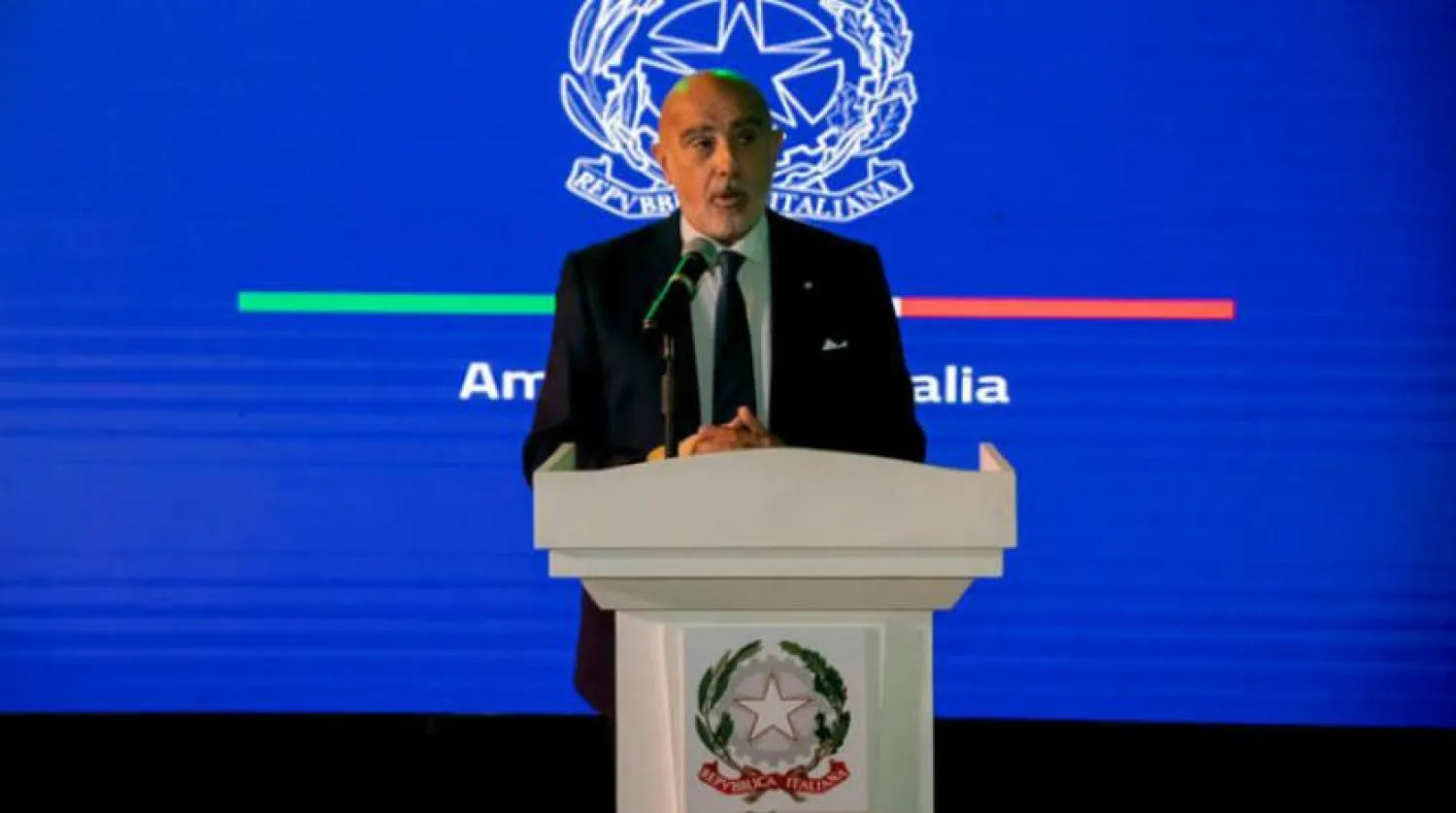Italian Ambassador to Saudi Arabia Roberto Cantone said his country was making great efforts to diversify its gas supplies to achieve independence from Russia, by expanding its cooperation with other gas-exporting partners.
He stressed in this regard that his country was looking forward to establishing a long-term partnership with a future source of hydrogen such as the Kingdom.
In remarks to Asharq Al-Awsat, Cantone noted that cooperation in the field of energy would cover renewable energy sources and hydrogen, as the Kingdom is investing in the transition towards carbon neutrality through its Saudi Green Initiative, while Italy has extensive experience in all types of renewable energy sources.
The Italian ambassador stressed that the Saudi-Italian political dialogue was aimed at addressing relevant international issues within the framework of the G20 joint action and security challenges that affect both countries in the Mediterranean and the Middle East. In this context, he pointed to a memorandum of understanding on strategic dialogue signed last year between Saudi Foreign Minister Prince Faisal bin Farhan and his Italian counterpart Luigi Di Maio.
“Italy has always imported oil from the Kingdom at an estimated level. In general, 80 percent of Italian imports are oil and petrochemical products, while many Italian companies support Saudi Aramco’s operations at various levels,” he told Asharq Al-Awsat. He noted that Saudis were interested in Italian-made products, such as food, fashion and interior design.
Cantone added that infrastructure was another very important area of cooperation.
He said that as part of investments planned within Saudi Vision 2030, many Italian construction companies were applying to tenders launched by the government to develop the giga-projects, as well as Saudi projects in the field of sustainable mobility and connectivity.
Regarding imports from Saudi Arabia, the diplomat noted that the stock market depended on the direction of the oil sector. He said that imports declined during the pandemic, but stressed that recovery was now on the right track, with imports amounting to 4.8 billion euros in 2021, compared to 2.9 billion euros in 2020.
The level of trade exchange remained essentially unchanged despite the coronavirus pandemic, amounting to 3.1 billion euros in 2020 and 3.3 billion euros in 2021, according to Cantone, who said that last year, the total balance was in favor of the Kingdom, while it is likely to remain the same in 2022, given the current high oil price per barrel.
“Our bilateral relationship is also based on an important economic partnership, taking into account the number of Italian firms that show a tangible interest in Vision 2030 and invest in the Kingdom by opening branches or new companies,” the ambassador remarked.









